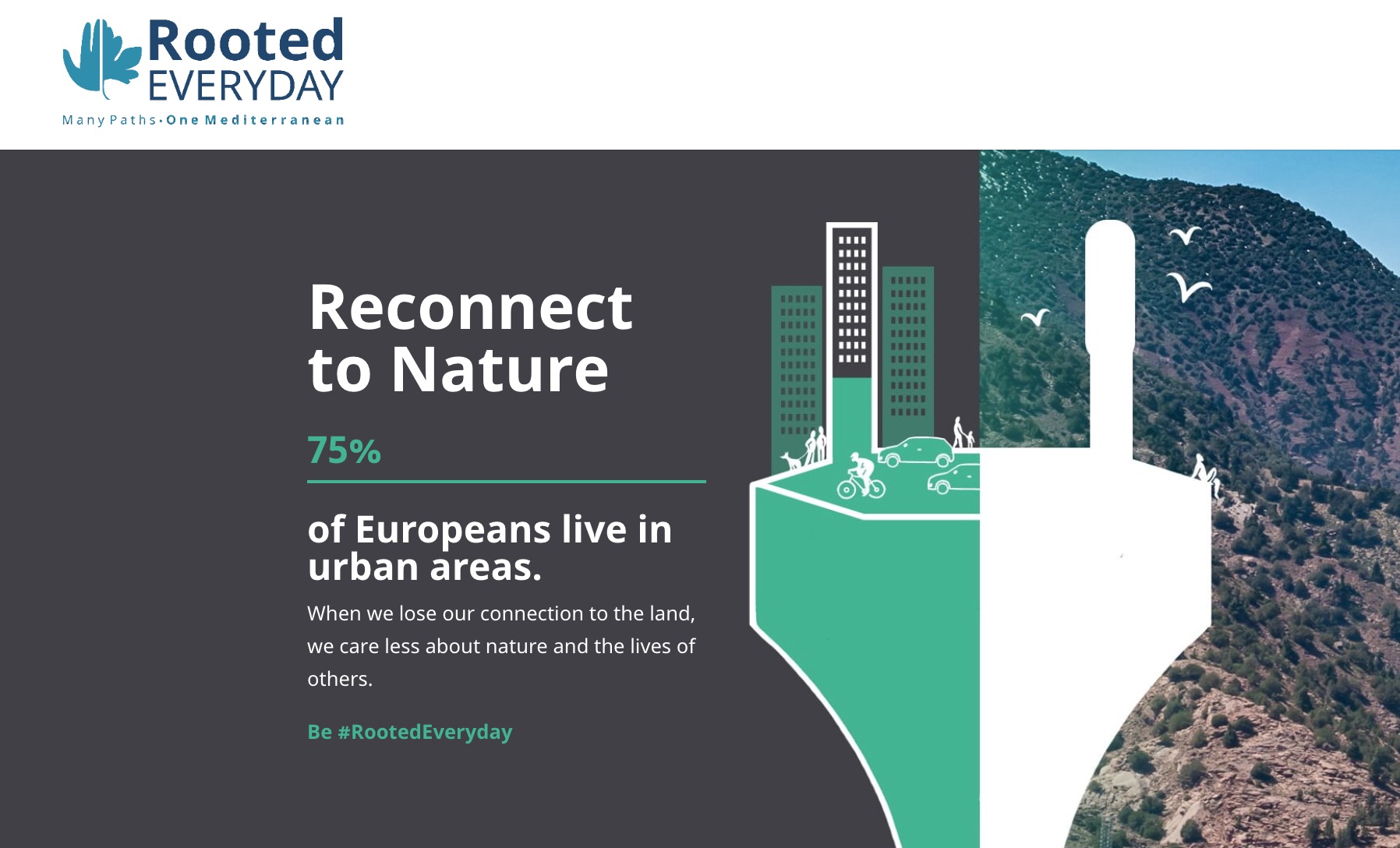
We are Rooted Everyday: Many Paths, One Mediterranean
Being part of #RootedEveryday is saying ‘YES’ to caring for the earth and being fair to the people whose direct livelihoods depend on it. Find out more about our mission to reverse the loss of biodiversity that occurs when Mediterranean cultural practices that have existed for generations stop.
Bring back balance
Feeling a connection to nature and our roots is as important to the environment as it is to our health and wellbeing. How can we truly understand the true value of Mediterranean if we don’t travel further than the cities? Learning about the environment, culture and history is interconnected.
Feeling connected to nature means caring more for the earth. It’s quite simple, if you feel connected to something you’re less likely to hurt it. Awareness nurtures our identity, sense of self and develops personal responsibility.
Through the work of our partners and with your support we can take action against the loss of biodiversity caused by habitat destruction, chemical pollution, invasive species and climate change. Our projects support local people to adopt and continue a sustainable way of life in the Mediterranean through forest protection, land restoration, and soil and water management.
Together we can change the way our homes and businesses use natural resources to preserve culture, heritage, plants and animal species which are vital for food production, clean water, clean air and medicine.
What could you do to be more #RootedEveryday?

The oak and cedar forests of the Al-Shouf Cedar Nature Reserve in Lebanon stretch from Dahr Al-Baidar in the north to Niha Mountain in the south. Its home to 2000 year old trees and is a conservation haven for wolves, the Lebanese jungle cat, Nubian Ibex, 250 species of bird, 31 species of reptiles and amphibians and 25 threatened species of wildlife. 520 species of plants grow there including 14 rare species. A popular destination for hiking and trekking many visitors come for bird watching, mountain biking and snowshoeing.
The area is also home to over 70,000 people living around the core zone of the reserve from 24 different municipalities that stretch out over two Muhafazat (Districts). The Society for Protection of Nature in Lebanon (SPNL) and Shouf Biosphere Reserve are monitoring biodiversity and providing training to produce a report on conservation in the 50,000 hectares Biosphere Reserve.
Promoting Hima Women Empowerment for Conservation and Livelihood
The revival of the Hima approach aims to conserve cultural and traditional skills and provide opportunities for female rural entrepreneurs. Al Hima is a traditional management system established by tribal people using sustainable land patterns to assure long-term survival in the face of scarce resources and water shortages. Today, the Hima approach empowers local people in decision making and is a way to preserve indigenous knowledge and local customs.
Lebanese women involved in the three Hima programmes are participating locally with decision makers to discuss how to protect their community and increase the numbers of women involved. They’re developing marketing plans to promote the Hima sites to Eco-tourists and promote the 70 different products they make using traditional methods which are sold in visitor centres. To keep on conserving natural heritage and improving the opportunities for local people further laws and regulations are needed in order to support this traditional and sustainable way of life.
Himas also play a role as seed banks. As part of restoring the Hima ecosystems the team are promoting sustainable community based water management systems which benefit the environment, local wildlife and decreases the runoff from agricultural land. The number of wells has increased and the amounts of agriculture chemicals in the soil and water is below recommended levels as set by the Ministry of Agriculture.

- Follow #RootedEveryday on Facebook, Twitter and Instagram
- Sign up to receive #RootedEveryday updates and news
- Learn more about how you can help protect Mediterannean areas of outstanding beauty